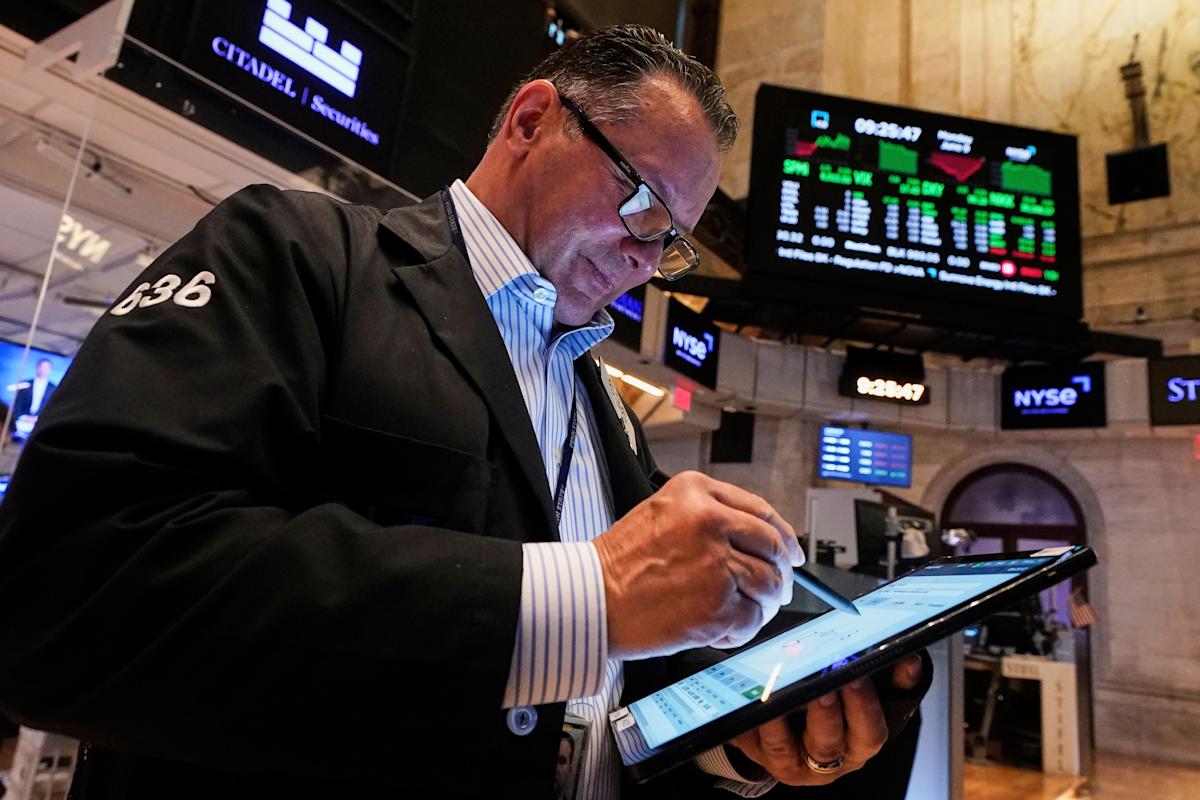In the world of finance, markets are currently experiencing a period of instability, particularly as major indexes like the S&P 500 and Nasdaq remain relatively unchanged in the face of renewed tariff threats. Investors are closely monitoring these developments, as uncertainty looms over trade relations and their potential impact on the economy. Amidst this backdrop, Boeing’s stock performance is notably affecting the Dow Jones Industrial Average, adding another layer of complexity to the overall market sentiment.
The ongoing trade discussions between the U.S. and other economies, especially China, have once again taken center stage. With the introduction of new tariffs on a variety of goods, market analysts are apprehensive about how these changes will affect corporate earnings and consumer spending. The muted performance of the S&P 500 and Nasdaq suggests that investors are adopting a wait-and-see approach, weighing the implications of these tariffs alongside other economic indicators.
Amid this turbulence, significant figures in the business world continue to make headlines. Recently, former President Donald Trump addressed the media during the signing of congressional resolutions aimed at counteracting California’s regulations on electric vehicles. Trump’s comments not only highlighted the ongoing tensions surrounding electric vehicle (EV) adoption but also sparked renewed interest in the automotive market and its future trajectory.
During his remarks, Trump had pointed words regarding Tesla and its CEO, Elon Musk, suggesting a fracture in their previously amicable relationship. He recounted a past conversation in which he asked Musk why he continued to support him, despite the Trump administration’s decision to abolish federal EV incentives shortly after taking office. Trump’s declaration that he “officially rescues the U.S. auto industry from destruction” by terminating California’s EV mandate signals a bold stance against state-level regulations that some believe stifle innovation and economic growth.
California’s initiative aimed to phase out gasoline-powered cars by 2025 and had gained traction in 17 other states, raising concerns for traditional auto manufacturers. Trump’s criticism centered on the “crazy rules” adopted by California, emphasizing that car prices had soared under previous mandates. This sentiment resonates with many consumers who feel the pinch at the pump and are concerned about the implications of stricter emissions regulations on their vehicle choices.
The automotive landscape is further complicated by the fact that major manufacturers are now essentially preparing vehicles for two separate markets, indicating a bifurcation in the industry that could have lasting effects. Trump argues that this juggling act puts unnecessary pressure on car manufacturers, forcing them to adapt to an environment fraught with regulatory uncertainty.
While there are many who champion the cause of electric vehicles, pushing for a greener and more sustainable future, the reality is that not all consumers have embraced this transition. Trump acknowledged the popularity of Tesla and electric vehicles more broadly, stating, “A lot of people love electric cars. They like Tesla.” However, he also reflected on his continued affection for combustion engines, recognizing that the automotive landscape is diverse.
As the markets adjust to these shifts in policy, it is clear that the dialogue surrounding electric vehicles and traditional combustion engines will shape not just automotive sales but also broader economic trends. With market indices like the S&P 500 and Nasdaq reflecting investor uncertainty, it is evident that many are watching these developments closely.
For investors, the potential impact of these trade discussions and regulatory changes on the automotive sector—and by extension, the overall economy—cannot be overstated. The Dow and its major components, including Boeing, present a mixed bag; while some sectors may thrive under new policies, others may face challenges that can sway market performance.
In summary, as the S&P 500 and Nasdaq tread water amidst these renewed tariff threats and marketplace tensions, the ongoing discourse surrounding electric vehicles—and the broader implications of regulatory changes—will remain a focal point for both investors and consumers alike. As these narratives unfold, it will be essential to stay informed and vigilant in navigating the dynamics that shape our economic landscape.
The discussions surrounding electric vehicle policies, trade relations, and their concurrent effects will no doubt continue to impact market sentiment. Investors must weigh these factors carefully as they position themselves for the future, all while keeping an eye on the evolving auto industry and its regulatory environment. The interplay between consumer preferences, government policies, and market realities makes for an intricate but fascinating landscape for those tuning in to both economic trends and corporate strategies.
Source link









